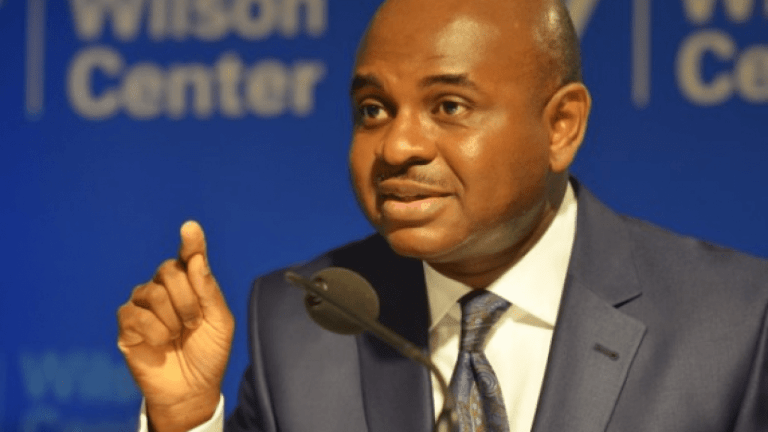Former Deputy Governor of the Central Bank of Nigeria (CBN), Kingsley Moghalu, has reeled out reasons why the apex bank should not directly funds the Small and Medium Enterprises (SMEs) and Micro, Small and Medium Enterprises (MSMEs).
Speaking on his verified X handle on Saturday, the fault the CBN for it’s direct funding of the SMEs and MSMEs.
The Nigerian economist and former presidential candidate contended that funding should instead be channelled through microfinance banks.
Moghalu condemned the African focus on Gross Domestic Product (GDP) growth, labelling it as a “misguided worship.”
He emphasized five fundamental pillars necessary for Africa’s development and advocated for a transition towards a more holistic approach to development.
According to him, Africa should prioritize the transformation of scientific innovations into commercially viable products to stimulate economic growth.
“The first business of African development is developing an endogenous mindset (worldview) of African development.
“Second: a strategy for overcoming poverty anchored on effective education and skills for productivity. Third: ensure the availability of electric power infrastructure.
“Second: a strategy for overcoming poverty anchored on effective education and skills. Some are called to create wealth, others to create ideas and entertainment, others to lead, and yet others to serve.
“Some will be famous, others relatively unknown. But to be happy and content (while able to take care of oneself and family) is the greatest gift of all.
“Third: ensure the availability of electric power infrastructure,” Moghalu said.
He stressed the fourth pillar involves channelling scientific inventions and innovations into the marketplace through mass production.
He said, “Fourth: channel scientific inventions and innovations into the marketplace through mass production.
“Fifth: ensure access to what I call ‘pipeline capital’ to the bottom of the pyramid – SMEs, MSMEs etc at affordable interest rates through microfinance banks (task for central banks, but not central banks themselves directly funding -no!).”








